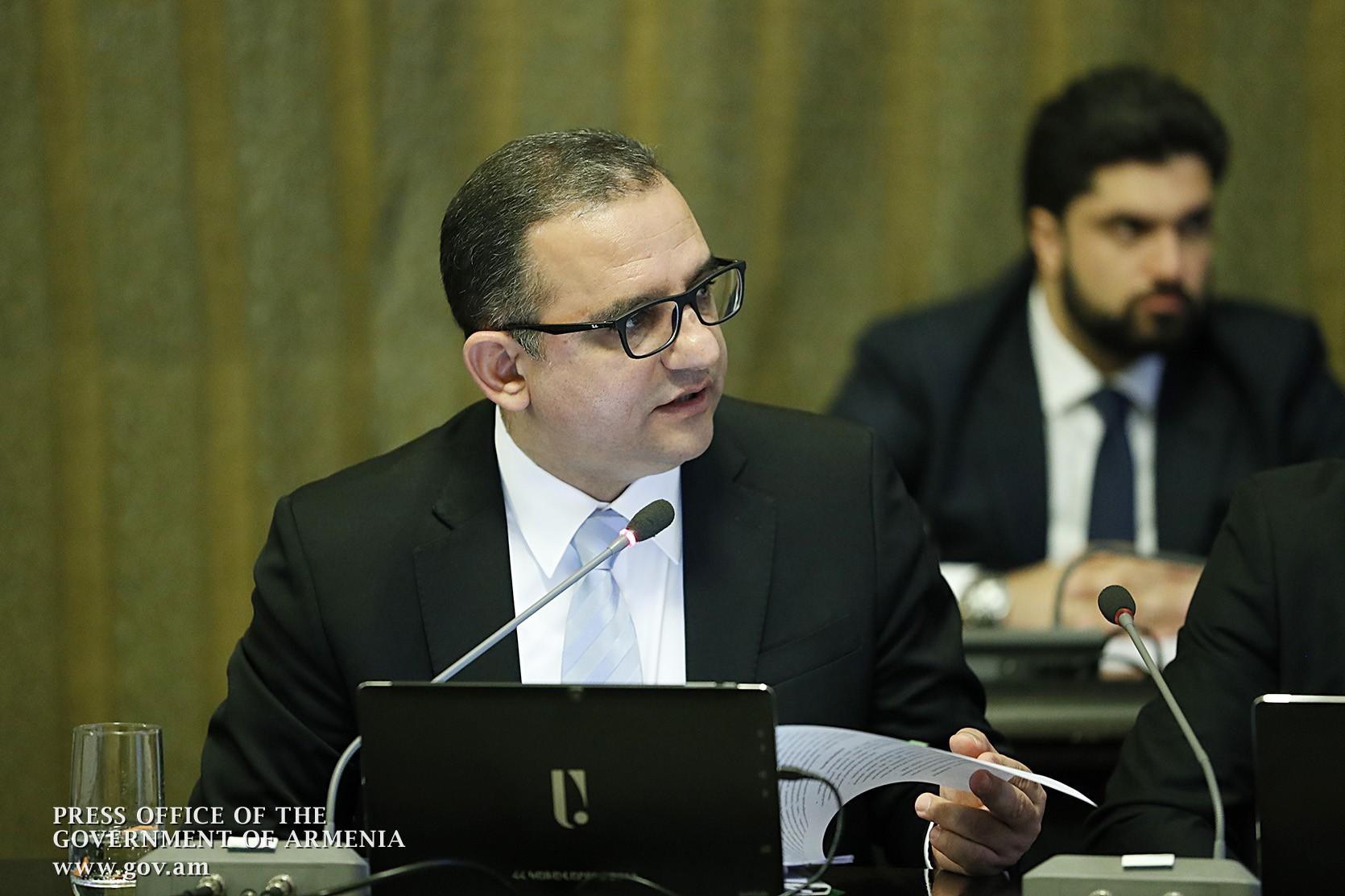
Armenian Government Approves Business Assistance Package to Cushion Coronavirus Impact
The Armenian government today approved the first in a series of bills to neutralize the economic impact of the coronavirus in the country.
It is designed to support businesses in three different ways.
According to the draft, it will allow entrepreneurs time to respond to changing demand conditions, thereby continuing their economic activity or rearranging and adapting to changing economic conditions, as well as adjusting development strategies.
Minister of Economy Tigran Khachatryan, who presented the project, noted that this support measure is the widest and applies to all legal entities and individual entrepreneurs operating in Armenia. All legal entities and individuals who have been operating for the past 12 months, regardless of their field of activity, can avail themselves of the program.
Khachatryan noted that banks, credit and insurance companies and pawnshops cannot apply for financial assistance under the program.
There is only one condition for businesses that want to use the support tool - they must have a good tax and credit history.
"If the financial system decides that the organization applying for assistance is its right partner, it has sufficient experience of cooperation, that is, if the type of activity offered by that organization is assessed as acceptable in the field of risk, then the size of its funding will be determined," said Tigran Khachatryan, noting also. that the maximum amount of funding for each organization can be 500 million drams in AMD, in some cases also in foreign currency.
The minister said that this is targeted assistance, that is, the economic operator can receive this support from the state for specific purposes.
It is noteworthy that at the previous session of the government, Prime Minister Nikol Pashinyan spoke about this support instrument and stated what exactly it means.
In particular, businesses may benefit from this support program if they intend to pay employee salaries and equity payments, but not more than 500,000 drams for each employee if they wish to purchase or import raw materials, provided that all the raw materials are to make finished products in Armenia. They can also use the funds for the import of equipment and equipment provided they are used to organize production in Armenia or to expand manufacturing.
Commercial entities may also apply for this support program if they intend to import food to be sold in Armenia.
Tigran Khachatryan said that government assistance can be provided in three ways. One of them is co-financing.
If a commercial bank determines that the business plan presented by the entrepreneur is worth financing, then the government co-finances, that is, allocates its share of the funds. The minister noted that the co-financing instrument also has specifics.
If an organization applies for a loan to pay for wages or taxes, government co-financing can comprise up to 50% of the total amount, that is, the more the bank pays, the more the government pays.
Government co-financing for raw materials purchase may be up to 40% of the total loan amount, 25% for equipment purchase, 45% for utility payments, and 30% for food imports.
The peculiarity of co-financing is that the financial institution may require less collateral to the extent that the government co-finances the transaction.
"This means that, for example, if an organization applying for support has only one unit of collateral, it can receive up to two units of financial support to pay their salaries," said Tigran Khachatryan.
The second type of government support is subsidization. If the organization applying for lending has adequate financial security or is sufficiently credit worthy, the government will then subsidize the interest on that loan, with the maximum amount of subsidy also depending on the purpose for which the subsidy is applied.
If an entity applies for a salary or tax payment, the government subsidizes all interest rates on the loan. If support is for raw material purchases, the state will subsidize up to 6%, for utility payments up to 10%, for equipment up to 5%, and for food imports up to 8%. According to Khachatryan, the amount of subsidy cannot exceed 12% of the loan if the loan is in AMD and 9% if it is in foreign currency.
A third form of government support is refinancing, which aims to transfer the currency risk of a trading organization to the government. In this case, too, the government does not support lending directly, but if the entity has a lending requirement and a collateral and the financial institution has a resource that can provide it, not in AMD, but in foreign currency, then the government agrees to replace the financing with this instrument. .
Prime Minister Nikol Pashinyan suggested that casinos should not be eligible for such assistance. Khachatryan noted that the draft decision will be amended.
Photo: Minister of Economy Tigran Khachatryan (Archive)
 Videos
Videos Photos
Photos
Write a comment